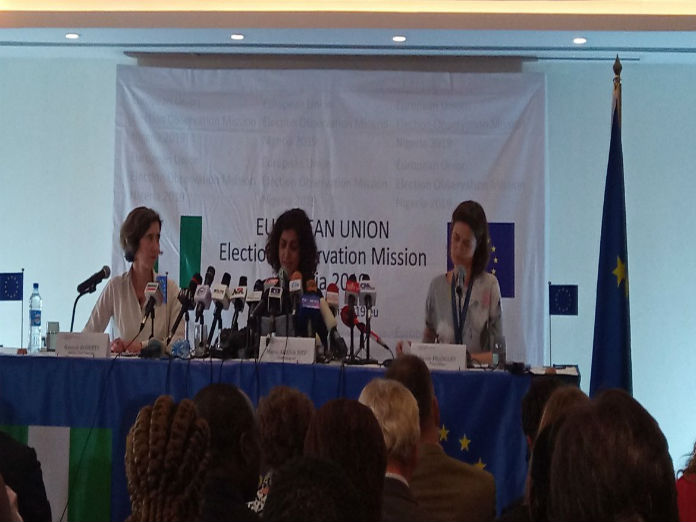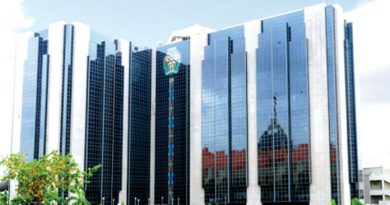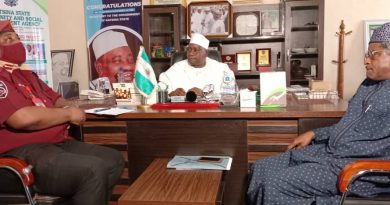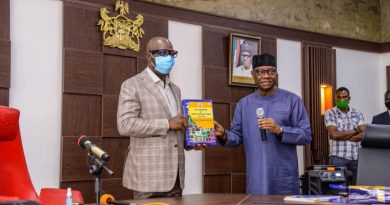European Union releases final report on Nigeria’s 2019 General Elections: Advises On A Bill to Protect Women
Oru Leonard
The European Union Election Observation Mission (EU, EOM), that observed the 2019 General Elections in Nigeria has advised stakeholders in the Nigerian electoral process to give a legal backing to the issue of women inclusion in the political party formation and positioning.
The Chief Observer of EU, EOM, 2019, Maria Arena stated this while presenting the EU election observation mission final report with 30 recommendations at Abuja, Nigeria on Saturday, June 15, 2019.
The 106-pages reports covers a wide range of electoral issues bothering on Administration, Voter Registration/ participation, Parties, Primaries and Registration of candidates, Campaign, Political Finance, Media, Digital Communication, and Security.
According to the EU EOM, “Given that it is only possible to run for office through a party,” the country should introduce a legal requirement for political parties to have a minimum representation of women among candidates. It added that “Noncompliance be sanctioned with proportionate and deterrent penalties.” While “parties be required to have policies and provide regular information on the promotion of women’s political participation within parties, as candidates, and more widely.”
The EU EOM also observed that 2019 general elections were “marked by severe operational and transparency shortcomings, electoral security problems, and low turnout”
Maria Arena said that the systemic failings evident in the elections and the low levels of voter participation show the need for fundamental reform in the country’s electoral system.
The final report of the EU EOM , further stated the media served the interest of President or Governors of state that owned Stations, this is with the exemption of the major National media. The reported also noted the harassment of Journalists, stating that the scrutiny of the electoral process was at times compromised with some independent observers obstructed in their work.
Among other observations of the Mission was that “the suspension of the Chief Justice of Nigeria by the president a few weeks before the elections was seen to lack due process and reportedly undermined judicial independence.”
In it’s first summary, the EU body noted that there was a decline in the number of women elected, and that these systemic failings show the need for fundamental reform so that future elections better serve the interests of the Nigerian people.
The EU EOM underscored the fact that without the reform, “there is a risk of unaccountable leadership and citizen disengagements.” It stressed that such reform requires principled political leadership committed to the rights of Nigerian citizens and an inclusive process of national dialogue involving state institutions, parties, civil society, the media and other experts. This needs to be urgently undertaken to allow time for debate, legislative changes and implementation well in advance of the next elections.
“The last-minute postponement of the elections put an undue burden on voters, results’ collation procedures were not sufficiently robust, and inadequate information was provided to the public” noted the Mission.
The EU EOM added that Fatalities escalated and the role of security agencies became increasingly contentious. “The leading parties were at fault in not reining in acts of violence and intimidation by supporters, and in abusing incumbency at federal and state levels.”
The Mission also noted that “the elections were competitive,” adding that “parties were overall able to campaign and civil society enhanced accountability.”
The EU EOM in the released report further has 30 recommendations for improving elections in Nigeria
In the recommendation EU EOM said that “Organisational and operational capacity within INEC be considerably strengthened. Improve planning, tracking, and the required human and material resources needed for timely and accountable operations. In addition, improve internal communication within INEC.”
Stressing the fact that the EU EOM is an independent body from the European Union institutions, and that the report does not represent the official position of the European Union, the Mission equally wants inter-agency body responsible for electoral security in the country to work more transparently and inclusively with regular consultations with political parties and civil society. It stressed that “Security arrangements, general principles for rules of engagement, updates, and complaints mechanisms be made public. Clear delineation of the operational roles of different security agencies be established, with the military only involved at the request of INEC.”
Another recommendation by the Mission has it that “to improve access to remedy and avoid petitions being taken to different courts at the same time, electoral tribunals be extended to also cover pre-election cases. Judicial capacity be increased through the appointment of more judges, training on election-related matters and improved case management mechanisms.”
On media operations the EU EOM recommended the “Reform of the licensing system for broadcast media to provide for pluralism and diversity in all states. Ownership structures be publicised, powers to grant licences be vested in the National Broadcasting Commission without presidential approval, and licence fees be tailored to the economic circumstances in each state.”
The EU EOM was deployed by the European Union to observe the general elections following an invitation from the Independent National Electoral Commission (INEC). The EU EOM said it was present in Nigeria from 5 January until 7 April 2019.
Among the mission’s mandate was to observe all aspects of the electoral process and assess the extent to which the elections complied with regional and international commitments for elections, as well as with national legislation.
Overall, the EU EOM concluded the elections were marked by severe operational and transparency shortcomings, electoral security problems and low turnout, adding that positively, however, the elections were competitive, parties were able to campaign and civil society enhanced accountability.




